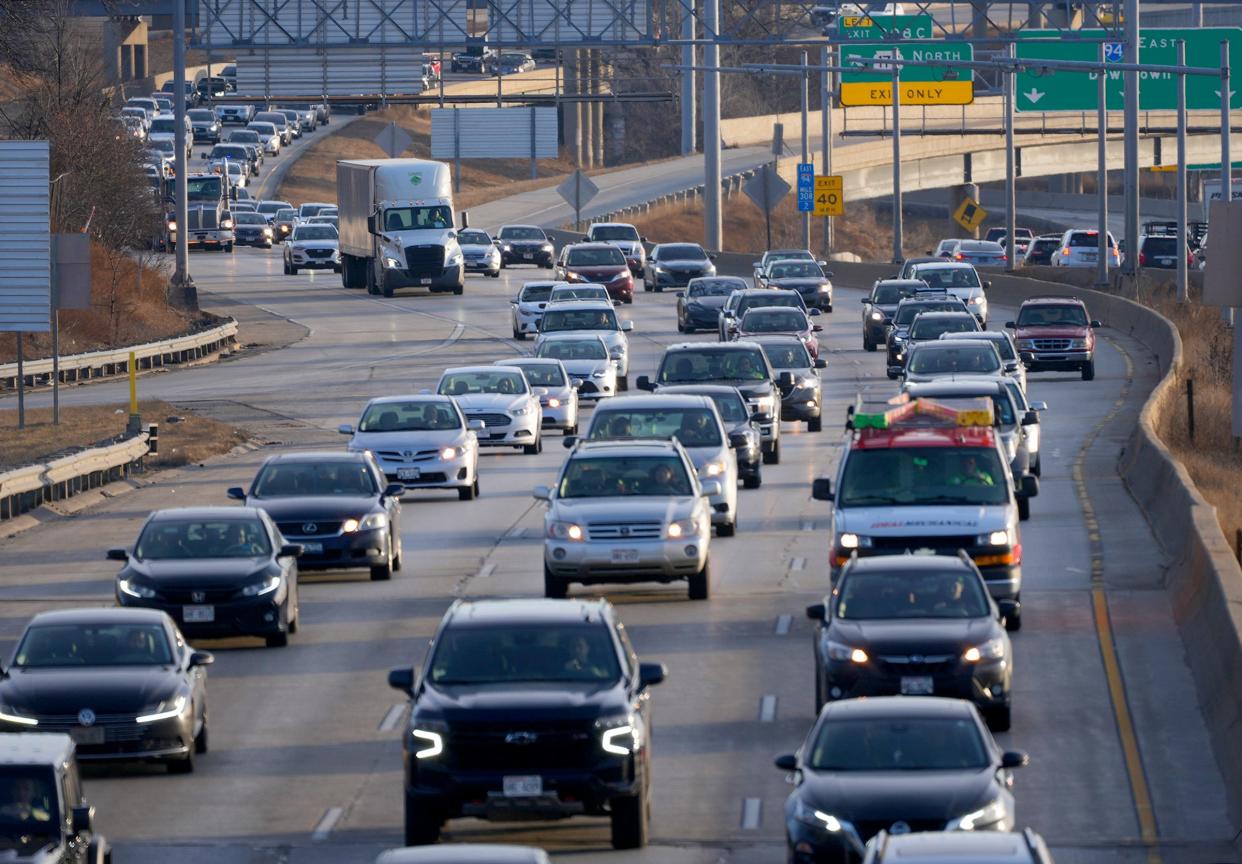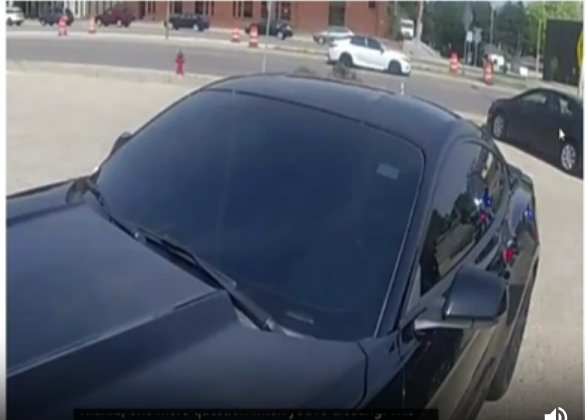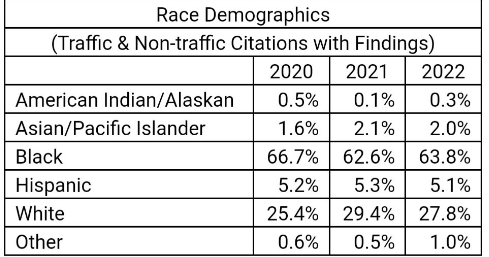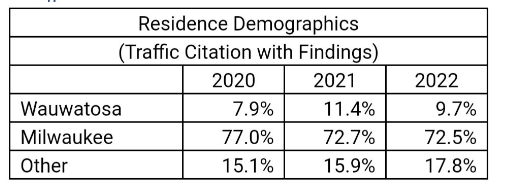Wauwatosa changed how it handles vehicle violations. Some say it could hurt minorities.

On Aug. 1, the Wauwatosa Common Council decided, 12-2, that citations involving traffic equipment violations, like broken taillights and cracked mirrors, should be handled at the city level.
For decades, Wisconsin police have already been able to issue these kinds of citations, so some residents and city officials are asking: why now?
Here's what the ordinance means, why police wanted it passed, and why some officials say this will disproportionately affect Black drivers.
What's the difference between a Trans 305 citation in circuit vs. municipal court?
The state statute that outlines "standards for vehicle equipment" is called Trans 305. In a municipality where Trans 305 isn't adopted into its municipal code, citations under this statute are handled in circuit court.
Municipal courts hear city ordinance violations, while circuit courts hear a wide variety of cases that are in violation of state law.
Fines paid through circuit court go to the state. Fines paid for an ordinance violation handled in municipal court go to the municipality. So as of Aug. 1 in Wauwatosa, fines paid for a Trans 305 violation go to city revenue.
Wauwatosa's municipal court has options for people to come in at night, while Milwaukee County Circuit Court does not, said Wauwatosa Police Sgt. Abby Pavlik.
There's also more flexibility when it comes to how an ordinance violation is handled, Pavlik said.
If a driver proves they fixed their violation before their municipal court date, the citation fee is waived, Pavlik said.
"Our approach right now is to educate that person," Pavlik said. "You know, 'Did you know that your window is illegally tinted?' and then we can issue them a ticket and say, 'Hey, I need you to get this fixed.'"
Why did Wauwatosa police ask for Trans 305 to be adopted into municipal code?

The Wauwatosa Police Department first proposed adopting Trans 305 into the city's code to city officials on June 13. The main concern presented explained how vehicles' illegal window tints threaten officer safety.
When windows are illegally tinted, officers "have a difficult time seeing what's going on in the car, and we are basically at the whims of the (vehicle) occupants to listen and put the windows down for us so that we can see in," said Wauwatosa Police Captain Luke Vetter.
Transportation Affairs Committee member John Dubinski, who said he has 35 years of experience working in law enforcement, agreed that illegal window tints compromise safety.
"Walking alongside a car, trying to look in, I can't tell if it's a bunch of kids playing in the backseat with their toy guns, or if it's a bunch of thugs that just committed a crime," Dubinski said.
Permissible window tints permit "passage through the windows of at least 50% of the visible light striking the windows," state law says.
While this was already enforceable under state law, officers "shied away" from issuing these citations when they were handled at the circuit court level, said Wauwatosa Police Chief James MacGillis at a July 25 Transportation Affairs Committee meeting.
At the municipal level, police have the flexibility to release a citation if the issue is fixed, he said.
"Enforcement isn't always going to involve (paying) a citation," said MacGillis. "We also want to have releasability for people that are issued a citation if we want to have safe vehicles on our roadways."
More stops for Trans 305 violations will disproportionately impact low-income drivers and people of color, public officials and residents say

The potential for an increase in stops for equipment violations sparked concerns regarding people of color who are already disproportionally cited, court records show.
"Why was this proposal never sent to the diversity, equity and inclusion committee?" said Ald. Andrew Meindl at the council's Aug. 1 meeting.
In 2022, for both nontraffic and traffic violations, 63.8% of citations were issued to Black people, while 24.8% were issued to white people, according to Wauwatosa's municipal court data.
"How can this body pass this without the whole picture and understanding of how this will impact our residents and visitors?" Meindl said.
While some officials mentioned that tickets can be dealt with more easily if they can be handled in Wauwatosa, municipal court data shows that most citations issued are for non-Tosa residents.

Black people are more likely to be harmed in a traffic stop, according to the database Mapping Police Violence.
To combat these statistics, The Center for Policing Equity, a California-based research center that analyzes and presents data for safer policing outcomes, recommends trying nonpolice alternatives for low-level traffic offenses.
In July, Ann Arbor, Michigan's city council unanimously voted to ban traffic stops for equipment violations in order to gain trust with its minority community.
Pulling over someone solely for something like tinted windows is "not usually a reason why an officer stops a vehicle," Pavlik said.
Cracking down on vehicle equipment violations is unfair to low-income drivers, said Wauwatosa resident Nicole Etter in a letter to the common council.
"Folks still need to be able to get to work, school, and doctor's appointments in our community," Etter wrote. "To assume that everyone can immediately afford to remedy their vehicle issue and get their ticket dropped is the height of privilege."
Pavlik said there's no guarantee that citations will increase now that they are handled at the city level.
"Any stop we make is at officer discretion, so it's all to be determined," Pavlik said.
More: Police officers speak to Black drivers less respectfully, study finds. Here's why it matters
Making Trans 305 a city ordinance violation could be a financial incentive for police, Ald. Meindl says
Handling Trans 305 violations at the municipal level takes away funding from Wisconsin's Common School Fund, "the only source of funding for Wisconsin school libraries," Meindl said.
"We will be taking dollars away from school libraries and instead bringing that revenue to the city of Wauwatosa," Meindl said. "City revenue will likely be an incentive for police to ticket for minor equipment violations."
Police did not mention an increase in revenue during their proposals to city officials. Instead, Pavlik told the Journal Sentinel that the primary goal of the proposal is to have these violations fixed.
The newly passed ordinance is a chance to increase awareness around vehicle equipment safety, Pavlik said, and she plans to coordinate public outreach initiatives to help people understand vehicle requirements and which modifications, like tints and lifts, are allowed.
Quinn Clark can be emailed at QClark@gannett.com. Follow her on Twitter @Quinn_A_Clark.
More: Tyre Nichols' death is the latest example of a minor traffic stop turning deadly, experts say
More: She thought her municipal court was operating like a 'cattle call.' So she decided to change it.
THANK YOU: Subscribers' support makes this work possible. Help us share the knowledge by buying a gift subscription.
DOWNLOAD THE APP: Get the latest news, sports and more
This article originally appeared on Milwaukee Journal Sentinel: Tosa passes new ordinance on vehicle equipment violations

